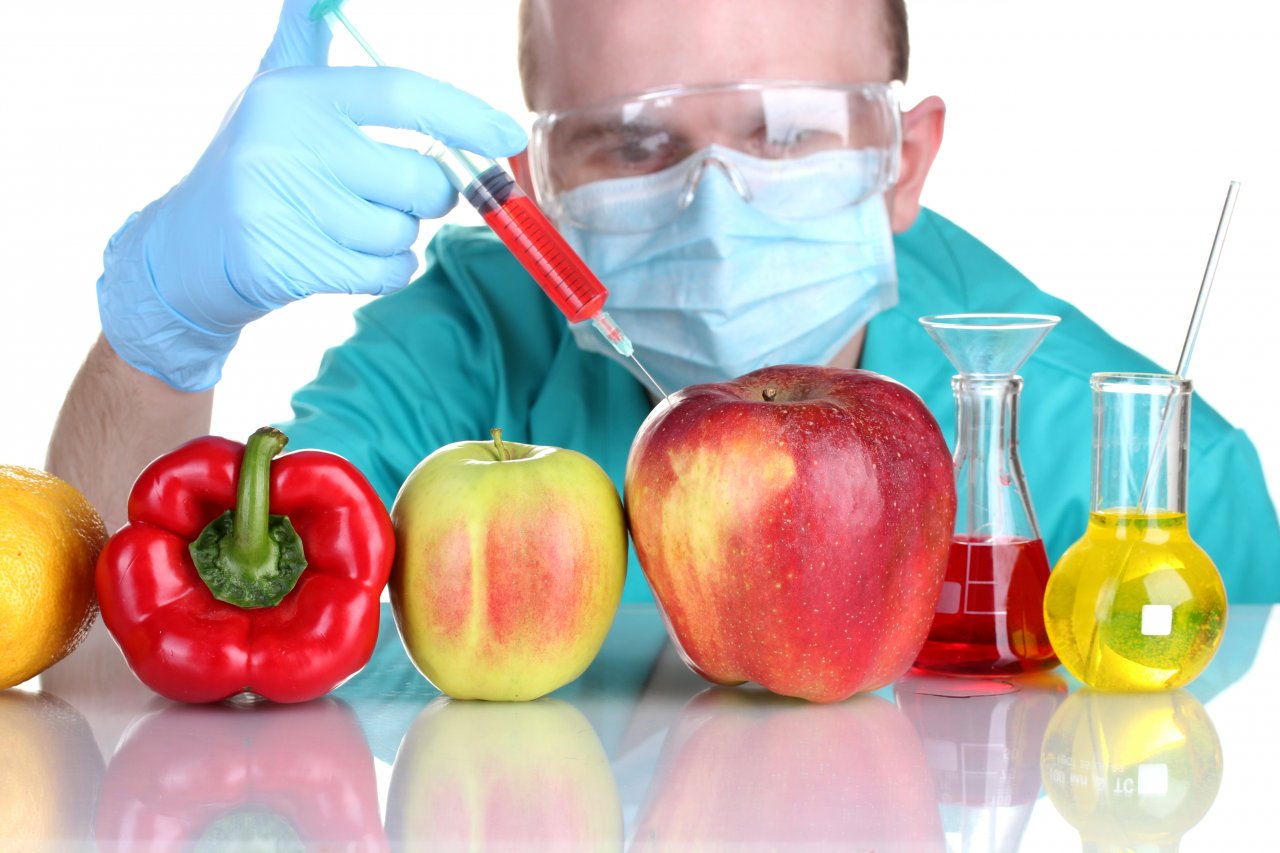Bokanovskified Production: Food and Nutrition in Modern Age
Ninety-six identical twins working ninety-six identical machines! […] The principle of mass production at last applied to biology. —Aldous Huxley
How often do we pay attention to what we eat and drink today? How many times have you reconsidered buying a pile of nicely arranged, seemingly spotless and “glowing” apples and tomatoes at the local supermarket? In the age of genetically-modified food, excessive production and hyper-consumerism, horrific concentration of pollutants, and the plastification of food containers and packaging, the good old saying You are WHAT you eat! has become more pertinent than ever before. By now, numerous studies on the dangers of plastic bottles, canned food, and the BPA synthetic compound have been released, with a primary focus on their harmful effects on humans, such as hormonal imbalance and the development of malignant cells in the body. Not to mention the dangers of microwaves and pre-cooked food, specifically designed for the “microwave effect.” A number of scientific studies conducted over the past 15 years have come out with shocking discoveries on cooking and heating food in microwaves. Even though scientists and food nutritionists are still largely divided on the potentially harmful levels of radiation emitted from the microwaves, we now have documented evidence that microwaves turn perfectly healthy, organic food into a “dead” substance. Firstly, the rapid heating of food in the span of several minutes only causes your food to lose its natural nutritional structure, including all of the organic antioxidants, vitamins and minerals; secondly, microwaving the food in plastic containers, cellophane and/or aluminium wraps–as many people tend to do–can easily lead to a leakage of all the toxic compounds contained in the container. Not to mention that pretty much all of the pre-cooked food is injected with additives and artifical supplements, otherwise, the plasticized container of pasta with meatballs would not be able to sit on store shelves for five days or longer. Just think of how your own pasta dish, when left to sit overnight, tastes the following day. It, most certainly, does not taste as a freshly cooked pasta that takes approximately 15-20 minutes to make (and in a homemade sauce).

In that respect, inevitable questions arise: “What is the actual purpose of consuming ready-made food?” “How much time during the day do we REALLY save buying and heating ready-made food, if such food facilitates the deterioration of our health, and cuts down our time on the planet?” As has been well documented, a large percentage of people in economically viable countries live off pre-cooked meals, consumed either in a restaurant or the comfort of their home. According to most people, the most common reason for this is the lack of time to buy and/or cook food at home, due to work-related obligations. Despite that, does anyone ever think how much time is spent using your smartphone to text your friends back and forth, to play those mind-numbing games on your bus rides to and from work, or to use your phone for “liking”, “posting” and “commenting” on profuse, oftentimes irrelevant Facebook or Instagram posts? Or yet, how much time do you spend working out at the gym, just to go back home to your pre-cooked meal or pretend to eat healthy at an expensive restaurant.
Speaking of the eating habits of modern humans in an economically viable society, I cannot help but think of the beautifully ominous descriptions of hyper-production and consumerism in Aldous Huxley’s pioneering work Brave New World. While the book itself warns the readers of the dangers of state capitalism and advanced capitalism, it also points to the inevitable problems with genetic and social engineering. One of the most captivating sections in the book is Huxley’s description of the so-called “Fertilizing Room” inside the Central London Hatchery and Conditioning Centre, where the process of hyper-production and social predestination takes place. Namely, human subjects are treated as disposable commodities that can be produced, altered, redesigned, and multiplied at any time, by means of the Bokanovsky’s Process:
One egg, one embryo, one adult - normality. But a bokanovskified egg will bud, will proliferate, will divide. From eight to ninety-six buds, and every bud will grow into a perfectly formed embryo, and every embryo into a full-sized adult. Making ninety-six human beings grow where only one grew before. Progress. (Brave New World, pp. 3-4)
One has to keep in mind that Bokanovsky’s Process does not refer to genetic engineering alone. In other words, the process of multiplying human beings does not necessarily mean the duplication (or cloning) of embryos. It also largely pertains to the multiplication of labour by means of machine production; the stifling of independent thinking, arts and beauty by imposing a belief that humanity needs and desires capitalism and its products; and the division of humans according to their physical and social determiners. As Huxley confirms, an inescapable consequence of capitalist systems and economies is the constant compulsion to socialize human beings into the privileged and unprivileged. In other words, “We […] predestine and precondition. We decant our babies as[…] Alphas or Epsilons, as future sewage workers or future[…] World Controllers” (Brave New World, p. 10). As dismal as it may seem, Bokanovsky’s Process is viewed as “one of the major instruments of social stability” (Ibid, p. 5), its main purpose being the promotion of statehood, economic stability and mass production, by means of human labour. Over time, humanity has learned to embrace, desire and worship capitalism and its products: no longer is the true essence and meaning sought in the wonders of nature, simplicity, and love, family or friendship. Rather, we have been collectively socialized into mindless marionettes desensitized at the sight of commodities. So long as we are able to financially provide for a certain commodity, our existence suddenly gains in meaning, for we have reached a point where money–the deadliest disease of modern humanity–became the sole determiner of our happiness. As Huxley writes: “[T]hat is the secret of happiness and virtue – liking what you’ve got to do. All conditioning aims at that: making people like their unescapable social destiny” (Ibid, p. 12).

If we consider modern capitalist societies in the West, but also in the East (e.g. India where crony capitalism has taken its full swing, destroying India’s economy and social stability), people have indeed come to terms with accepting their inevitable social and financial status. Namely, modern humans have been conditioned to like their jobs, as meaningless as these jobs may be, and to accept their unprivileged position(s) within the company, so long as they are able to afford certain commodities. Going back to the discussion on food and healthy diet, it should be noted that modern capitalist societies treat food as much of a commodity as they do with clothes or electronic gadgets, for example. Healthy and organic food is no longer the staple food of the masses; on the contrary, it has turned into a food for the privileged. Take, for example, the prices of fresh and organic fruit and vegetables as opposed to the price of toxicized and plasticized food. Numerous studies have attested to the benefits of organic food, primarily for its increased antioxidant levels and less likelihood for the intake of cancerogenic substance. Nonetheless, we have to bear in mind that every person who cares about their well-being, would of course prefer eating and buying healthy food. In the survey administered by the U.S. Organic Consumers Association in 2014, about 45% of Americans said that they have included or will include organic products into their everyday diet. While this seems very promising, the question here remains: What about the 55% of the survey respondents who said that organic food is not a part of their everyday diet, due to a number of reasons, primarily their financial situation? The simple fact is that in advanced capitalist societies, organic food products have trippled in price, compared to the non-organic food of the same variety. As such, people on minimum (sometimes average) wages, and with children, cannot afford the more healthy food options. Not to mention that people diagnosed with diabetes are very often obliged to spend an arm and a leg for their specific diet.
- Since when eating healthy has become a luxury?
- What drives up the prices of organic food on world markets?
- Does eating healthy imply being wealthy?
- Should our own health depend on how much money we can afford to spend on certain food?
- If you eat organic food, does that instantaneously define your social status?
- Is organic and healthy food reserved only for the privileged?
- Have we been conditioned to settle for the food that we don’t really want to eat, but have to, since that is the only thing we can afford?
- Is this really the idea of progress humanity has been striving for: to poison food for the masses, but at the same time, sterilize (i.e. deprive the food from toxicity) for the privileged?
Reflecting on the enslavement of minds by captialism and its products, Huxley poses a very interesting question to all of humanity:
No, the real problem is: How is it that [we] can’t, or rather – because, after all, [we] know quite well why [we] can’t–what would it be like if [we] were free – not enslaved by [our] own conditioning. (Brave New World, p. 78)
Works Cited:
Huxley, Aldous. Brave New World. London: Vintage, 2004. Print.
